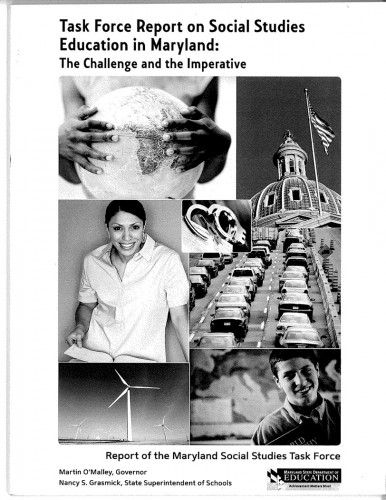Making The Case For Social Studies
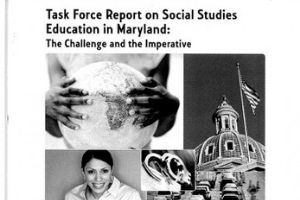
 A blog post by Assistant Director Deborah Cardin.
A blog post by Assistant Director Deborah Cardin.
Does it surprise you to learn that when asked about the role of social studies in their classroom, 88% of Maryland teachers surveyed indicated that it is not a high priority? How about the fact that most middle school social studies teachers have not received certification in this subject? Or that many elementary school students – especially in schools in high poverty areas that are often struggling to meet federal accountability standards – may be pulled out regularly from their social studies classes to receive remediation in reading and math? We shake our heads as the news media reports distressing studies indicating that high school students demonstrate limited knowledge about how our government functions or the fact that voter registration is down among young people. Can there be any correlation between these facts?
These statistics – as alarming as they are – are understandable in the context of a much larger issue, the decline in social studies instruction in Maryland schools since the implementation of the federal No Child Left Behind legislation in 2002. With its emphasis on three core academic areas – reading, math, and science – and the strict accountability tied to student achievement in these three areas, school systems across the country made changes to their curriculum in order to meet this federal mandate. One unintended consequence of this legislation was the marginalization of other subject areas, including social studies.
The impact of this decline has been thoroughly documented. In 2004, a task force was formed under the auspices of the Maryland State Department of Education (MSDE) to study this issue. I was privileged to serve on the Maryland State Social Studies Task Force along with teachers, social studies content specialists, university professors, principals, parents, and other museum professionals. Over the course of three years, the group met regularly. One of the studies we commissioned, the Status of Social Studies Education in Maryland Survey, included the results of an extensive survey of Maryland teachers and principals about the amount of time devoted to teaching social studies in elementary, middle, and high schools. The results of this survey confirmed our suspicions, with the majority of teachers reporting that social studies is not a priority subject at their school, and that instructional time in the subject area had decreased dramatically especially in elementary schools and, perhaps most distressingly, in schools in high poverty areas.
The Task Force work concluded with the publication of a report, Task Force Report on Social Studies Education inMaryland.
The full report can be accessed at http:///marylandpublicschools.org/NR/rdonlyres/FCB60C1D-6CC2-4270-BDAA-153D67247324/23710/Social_Studies_Taskforce_Report_2010.pdf.
The report included nine recommendations for improving social studies instruction. The most controversial was a recommendation to create statewide assessments in social studies. Our group struggled with this recommendation because, after all, who wants to increase the pressure on students, teachers, and schools by adding more testing requirements. Unfortunately, the Task Force studies demonstrated the reality of what happens when there are no high stakes tests required for a specific subject area – classroom time devoted to that subject is decreased and students suffer the consequences.
Surprisingly, the report’s call to action went unanswered, as the report was not widely distributed and its recommendations were not enacted. This was most likely attributed to the one recommendation linked to testing which was an unpopular stance among school superintendents. However, the concerns raised by the Task Force did not go away. Furthermore, social studies advocates received another blow whenMaryland’s only high stakes test in social studies – the high school government assessment which students had to pass as a graduation requirement – was eliminated due to budgetary pressures.
Last spring, an advisory council was convened to again take up the case for social studies. I was asked to participate in this group. Taking off where the Social Studies Task Force left off, the group worked together to advocate on behalf of improved social studies instruction to many different community stakeholders crafting a case for support that included compelling data about how social studies effectively prepares students for assuming civic responsibilities and many different careers.
This Wall Street Journal article by Norm Augustine makes a persuasive case for how social studies prepares students for business careers – http:///online.wsj.com/article/SB10001424053111904265504576568351324914730.html?KEYWORDS=Norm+Augustine#articleTabs%3Darticle
Advisory group subcommittees worked diligently on a plan for implementing the Task Force report recommendations. One of the group’s greatest success has been the recent introduction in the Maryland State Legislature of a bill, Senate Bill 293 (Education – Core Content Areas – Accountability Program), that would require school districts to implement social studies assessments.
The text of the bill, including the names of its sponsors, can be found at http:///mlis.state.md.us/2012rs/billfile/SB0293.htm
On Wednesday, 8 February, I had the opportunity to travel toAnnapolisto testify on behalf of SB 293 along with 22 other individuals.
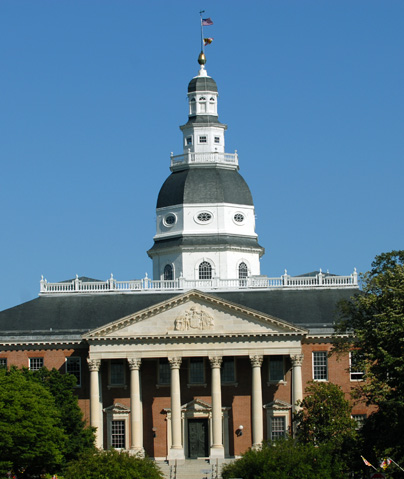
The bill’s lead sponsor, Senate President Mike Miller, gave an impassioned opening speech about our need to better prepare today’s students to become tomorrow’s engaged citizens. Social Studies Advisory Council chair, Scott McComb gave further testimony in support of the legislation citing the work of the Social Studies Task Force and the bleak details about the lack of time that is currently devoted to social studies. Witness after witness reiterated these points from the points of view of teachers, business leaders, parents, and university professors. Perhaps most compelling, a group of high school seniors from Blake High School in Montgomery County spoke eloquently about how their participation in high quality social studies courses at their school have provided them with such essential communication and analytical skills and has even shaped their thinking about future career plans.
I testified on a panel with two other museum colleagues from the Maryland Historical Society and Jefferson Patterson Park and Museum. Together we talked about the impact of decreased social studies instruction on field trips to our museums and the important role that museums play as partners in an enhanced social studies curriculum.
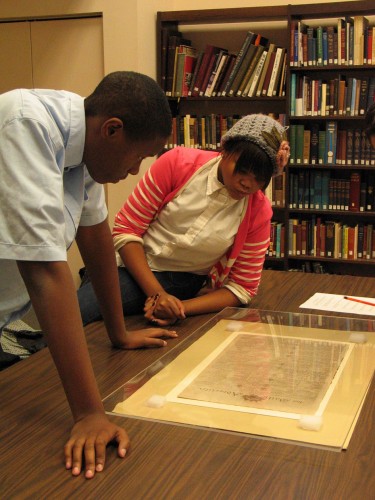
It was heartening to hear the comments and concerns raised by Senate committee members and their desire to improve the conditions of social studies instruction in Maryland schools.
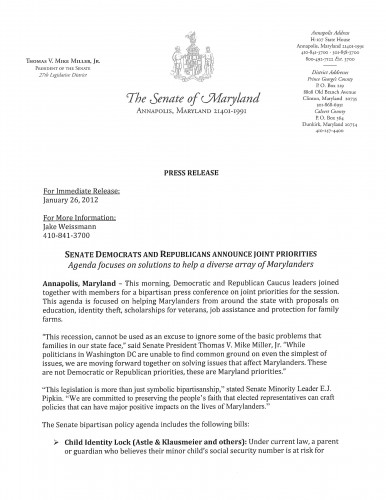
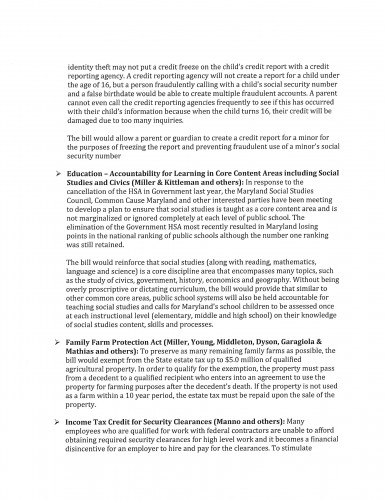
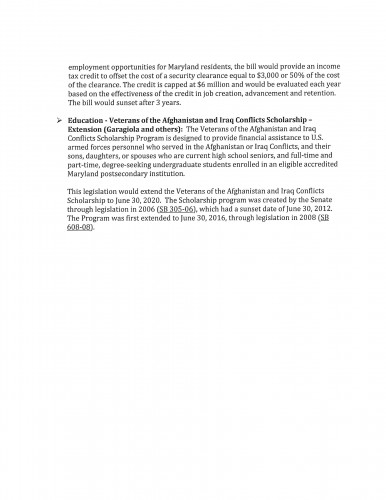
While we do not yet know the status of the bill’s passage nor when it will be introduced in the House of Delegates, there is good reason for celebrating the fact the case for social studies is finally being heard.
It is not too late to voice your support for improved social studies instruction in Maryland schools. Contact your Senators today and urge them to support SB 293.
A list of Maryland State Senators can be found here: http:///www.msa.md.gov/msa/mdmanual/05sen/html/sendist.html.

